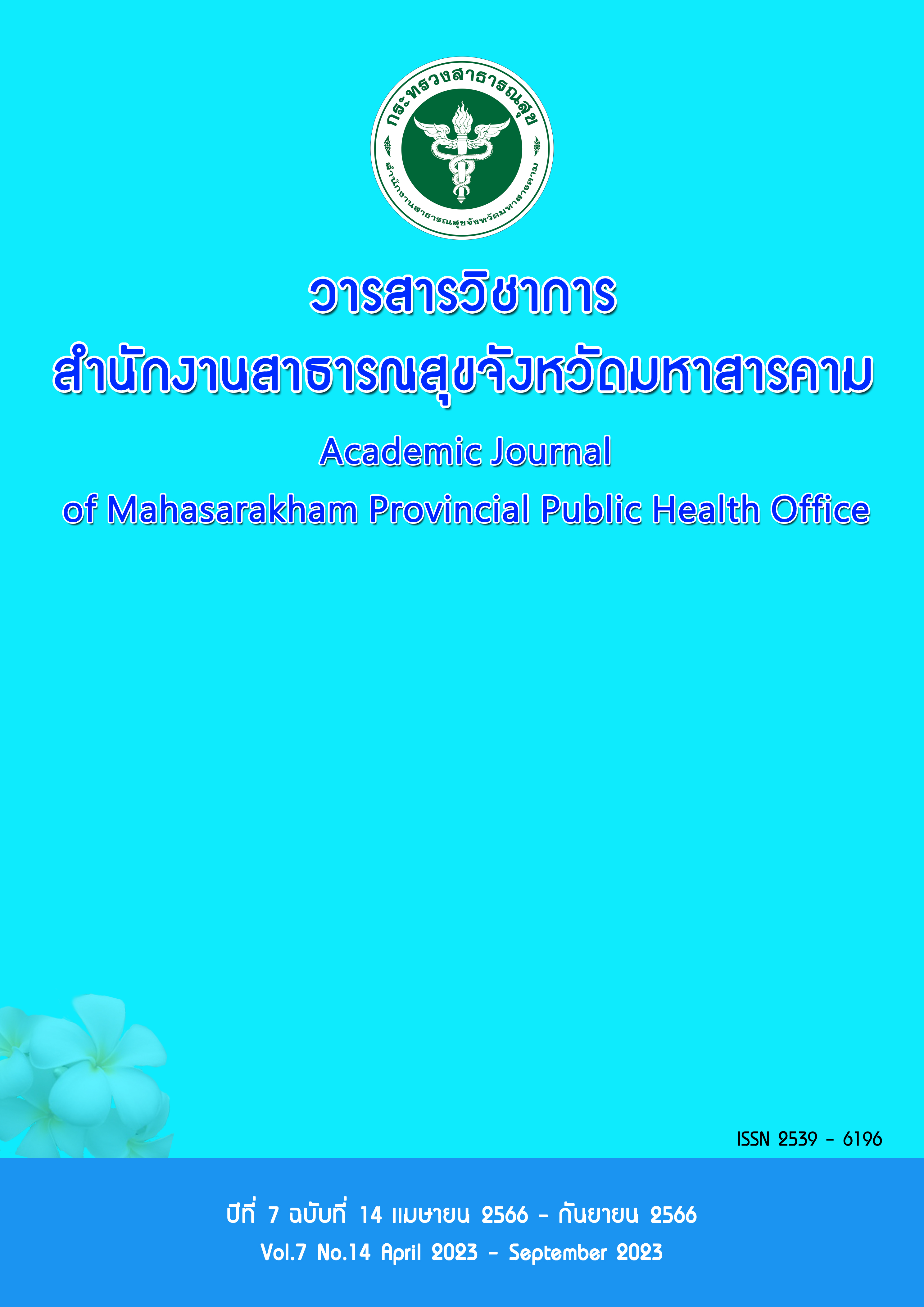Factors associated with Streptokinase failure in the treatment of STEMI patients in District hospital : a retrospective study
Abstract
An ST-Elevation Myocardial Infarction (STEMI) is a disease with a high short-term mortality rate. This condition must be diagnosed accurately and quickly by General Practitioner and treated with streptokinase (SK) blood thinner.
This research is a retrospective study collected data during January 1, 2017 to June 30, 2023 with 70 patients reviewed by medical records, admitted to hospital with STEMI, diagnosed within 12 hours of the onset of symptoms, and given streptokinase (SK) blood thinners. The data were collected on gender, age, underlying diseases (Diabetic Mellitus, Hypertension and Dyslipidemia), killip classification, door-to-needle time, ischemic heart lesion, and smoking records. Besides, the association between different variables and streptokinase failure to treat STEMI patients was determined with a multiple logistic regression model at a significant level of .05
The results indicated that for the number of 70 patients admitted for treatment, the most common gender was male, numbering 53 people (75.7%); the average age was 61.09 years old (SD=13.331); the most common comorbidities were hypertension, numbering 18 people (25.7%); the most common Killip classification was Class 1, numbering 41 people (58.6%); the average door-to-needle time was 35.77 minutes; the most common of ischemic heart position was anterior wall, numbering 34 people (48.6%); the number of smoking patients was 28 people (40%); and the STEMI patients successfully treated with streptokinase were 31 people (44.3%)
Moreover, the failure of 68.38% streptokinase was significantly associated with factors in the treatment of STEMI patients were Dyslipidemia (OR 0.23, 95%CI 0.02, 2.40), Killip classification level 1 patients (OR 0.35, 95%CI 0.12, 0.99), STEMI patients with ischemic heart disease at the inferoir wall (OR 0.67, 95%CI 0.14, 3.27) and STEMI patients with ischemic heart disease at anteroir wall (OR 1.66, 95%CI 0.35, 7.85). These factors allowed the internist to be able to diagnose and expedite the referral period for Rescue PCI in order to reduce the damage of heart muscle, mortality, and the incidence of chronic heart failure for further.
Keywords : STEMI, Streptokinase (SK), failure


